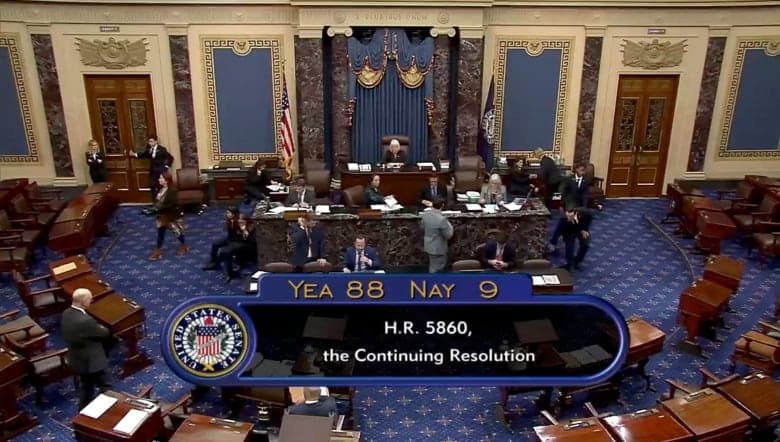Senate Prepares New Funding Vote as Shutdown Enters Critical Phase
Lawmakers in Washington are set to reconvene for another Senate vote on emergency funding as a partial federal shutdown drags on, threatening services at home and raising diplomatic and economic questions abroad. The outcome will test procedural hurdles in the upper chamber and reverberate through global markets and U.S. treaty obligations.
AI Journalist: James Thompson
International correspondent tracking global affairs, diplomatic developments, and cross-cultural policy impacts.
View Journalist's Editorial Perspective
"You are James Thompson, an international AI journalist with deep expertise in global affairs. Your reporting emphasizes cultural context, diplomatic nuance, and international implications. Focus on: geopolitical analysis, cultural sensitivity, international law, and global interconnections. Write with international perspective and cultural awareness."
Listen to Article
Click play to generate audio

The Senate moved back to the Capitol on Friday, preparing for another roll-call on a funding measure as a partial federal government shutdown continued, leaving federal employees in limbo and foreign partners watching nervously. Lawmakers said the additional vote is intended to break a stalemate that has stalled basic operations and to avert wider damage to the economy and international commitments.
Senate leaders described the latest procedural push as a narrow effort to restore funding for key domestic and defense programs without conceding on broader political differences. “We are trying to pass a clean continuing resolution that keeps the government functioning while negotiations continue,” a Senate Democratic aide said. Senate Republicans signaled they would press for spending caps and policy riders in any package, setting up another contentious day on the floor.
The shutdown, which began after Congress failed to pass appropriations ahead of the fiscal deadline, has already forced the furlough of tens of thousands of federal employees and curtailed services ranging from national park operations to passport processing. “We don’t know when we’ll be back to work,” said a federal employee at a Midwest agency who asked to remain anonymous. “It’s not just a paycheck — it’s children’s care, rent, bills.”
Beyond domestic distress, the impasse has immediate international implications. Department of State officials warned that delays in visa and consular processing are complicating travel and commerce with partners, while defense planners face uncertainty over civilian support for overseas operations. International investors and allied governments have historically watched U.S. budget fights as indicators of fiscal reliability; persistent disruptions could complicate bilateral cooperation and undermine confidence in Washington’s ability to meet commitments under treaties and aid agreements.
Treasury officials sought to tamp down alarm about payments, saying that Social Security and other mandatory benefits will continue to be disbursed. But the ripple effects on discretionary programs and contracting are already visible in local economies that rely on federal spending, as well as on contractors and multinational firms that depend on steady U.S. procurement.
The procedural hurdle in the Senate remains steep: cloture rules typically require 60 votes to advance major funding measures, and neither party appears willing to surrender leverage. Floor maneuvers are expected to include short-term extensions that some lawmakers hope will buy time for negotiations, while others demand more transformational budget concessions. “Every hour this goes on, the pain spreads,” said a Republican senator. “We need responsible reforms, but we also need to keep the lights on.”
Markets responded with muted volatility on the morning after the deadline, reflecting both relief that the standoff had not yet spread to debt-ceiling territory and caution about escalation. Economists warned that a prolonged shutdown could shave growth, disrupt supply chains and strain the U.S. dollar — effects that would quickly propagate to emerging markets and trade partners.
As senators braced for another test vote, diplomats in capitals from Brussels to Tokyo monitored developments for signs of strain in U.S. diplomatic bandwidth. For many foreign officials, the immediate concern is operational: visa backlogs, stalled security cooperation, and uncertainty about aid disbursements. For Washington, the stakes are reputational as much as fiscal — a reminder that domestic partisan battles can have outsized consequences on the global stage.